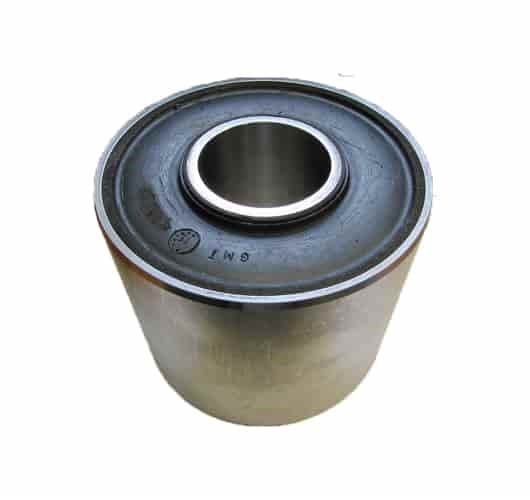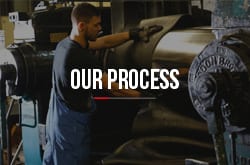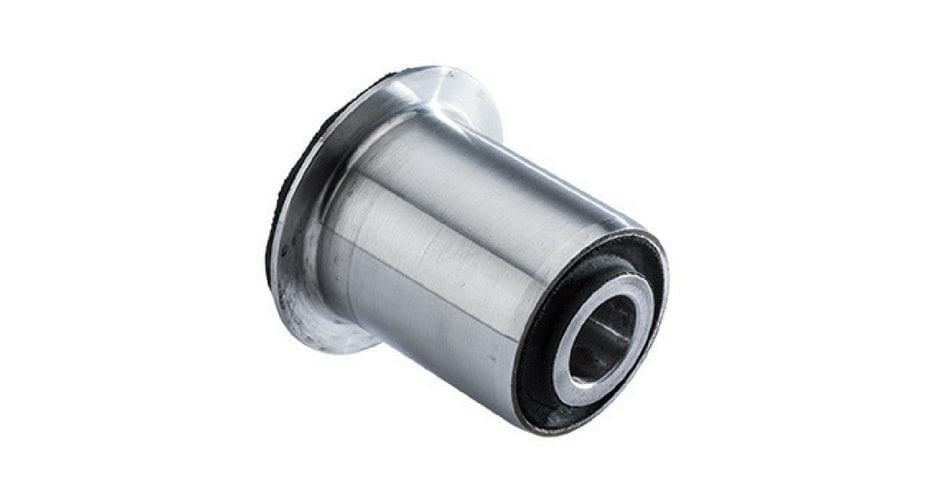The Advantages of Using Rubber Bushes
Rubber bushings are effective in reducing the transmission of shock and vibration between parts. In the automotive industry, there are many advantages of using rubber on shock absorbers, including improved safety and comfort when driving, minimised noise and damage due to reduced vibration.
The use of automotive rubber bushes has been credited to Walter Chrysler, an American automotive industry executive. Walter encouraged the adoption of rubber vibration-isolating mounts to cut down the vibration and noise of vehicles. From then on, automotive rubber bushes were adopted for use in many parts that generate vibration and noise, and are now a conventional method across the automotive and commercial vehicle industries.
There are many types of automotive rubber bushes available that can improve the function and lifespan of various systems and machinery. Not only do vibrations cause damage to products, but they can also produce noises which are both uncomfortable and harmful to operators. As a result, it is important to use the right anti-vibration products in the right places.
What is a Rubber Bush?
A rubber bush (sometimes referred to as a rubber bushing or shock bushing), is a type of vibration isolator that provides a flexible interface between two rigid parts. The rubber on shock absorbers acts as a buffer, absorbing and damping energy produced by the interaction of these two parts. It separates the parts while allowing a limited amount of movement, thereby minimising vibration and noise.
Rubber bushes usually come in the form of a cylinder, encased in an inner and outer metal. In between these layers is vulcanised and bonded rubber. The metals can be produced in a wide range of materials, including mild steel, stainless steel, and aluminium. Bushes are stress relieved after vulcanisation and can be pre-stressed for improved durability. Their dimensions, profile and rubber, are designed to suit a specific application using various techniques such as finite element analysis to ensure optimised performance and durability. Shock rubber bushings are cushions made of rubber, polyurethane or other materials. These cushions effectively control the amount of movement in car suspensions and steering joints to absorb road bumps and reduce noise and vibration.
Advantages of Using Rubber Bushes
- Suitable for all vehicle types
GMT’s rubber bushes are suitable as mechanical joints on road and rail vehicle suspensions, pivot arms, engine mountings, gearbox mountings, and as captive cab mountings. Automotive rubber bushes are used in suspension systems, as reducing vibrations is essential to prevent noise and vibrations travelling through both on and off-road vehicles.
- Improved safety and comfort when driving
The rubber on shock absorbers plays a critical role in vehicle safety and comfort when driving, used for positioning and aligning suspension and steering components. These include shock absorbers, sway bars, control links and torsion bars. Rubber bushes need to be in good condition, to avoid rapid tyre wear and steering or breaking problems.
- Minimised noise caused by vibration
The rubber on shock absorbers can minimise the noise caused by vibration and remove the need for lubrication. As a result, they are often preferred over solid connections. Rubber bushes also make great shock absorbers, vibration isolators and abrasion resistors.
- Minimised damage caused by vibration
Repeated vibrations can be the source of damage to suspension systems, contributing to the weakening of this type of system and surrounding structure. Shock rubber bushing works to prevent this from happening, minimising the vibrations and their resultant damage.
- Shock rubber bushing can provide a long, maintenance-free service life
The rubber on shock absorbers can be optimised and tuned to provide specific stiffness characteristics in different directions. Automotive rubber bushes can also provide articulation by way of torsional, conical movements where other anti-vibration products may not be able to do so. The shock rubber bushing is usually pressed into a housing, thereby eliminating the need for the use of separate fixing mechanisms. Where required, however, central inner metals can be incorporated into the design to facilitate fixing the inner metal to surrounding structures using bolts.

Disadvantages of Using Rubber Bushes
- Can wear down over long periods of time
Shock rubber bushings can experience wear from friction, age, heat, exposure to road salt or lubricants, the stress of frequent movement and weight loads. Some symptoms of worn shock rubber bushing include clunking on rough roads, when turning the steering wheel or braking hard, and poor handling, due to increased movement between parts. You may also notice your suspension getting worse, which could cause serious wear on tires and brakes.
Find out more about the problem with worn suspension bushes in a recent blog post exploring the symptoms to look out for and how to replace them.
- They can be complicated to replace
Automotive rubber bushes can be complicated to replace. What could feel like a suspension problem might be a fault in the rubber bushing that cushions parts. Equally, many shock rubber bushings may be difficult to remove when pressed into the metal sleeve and therefore not able to be replaced separately. Newer cars have more permanently lubricated rubber bushings, which makes maintenance a bit easier. Either way, a thorough bushing inspection may be necessary.
Shock rubber bushings offer many advantages to the driver, including improved safety and comfort when driving. If you would like more information about the rubber on shock absorbers or automotive rubber bushes, please feel free to contact us. We have a wide range of rubber bushes and other anti-vibration mounts available. If you require rubber bushes for a specific application, we can offer a custom service.










